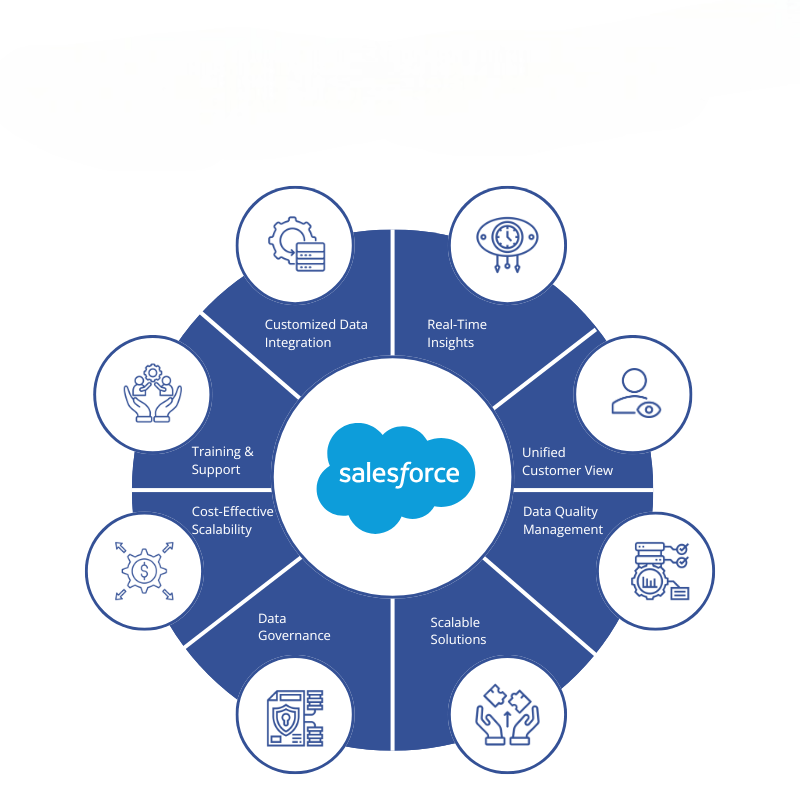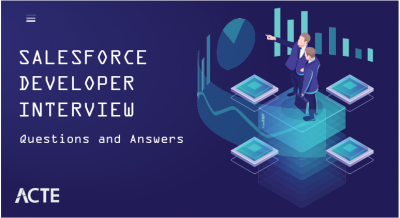
- Overview of Salesforce Career Paths
- In-Demand Salesforce Job Roles
- Skills Required for Salesforce Careers
- Entry-Level vs Experienced Roles
- Certifications to Boost Your Career
- Average Salaries by Role
- Remote and Freelance Opportunities
- Top Companies Hiring Salesforce Experts
- Job Market Trends in Salesforce
- Tips for Cracking Salesforce Interviews
- Building a Salesforce Portfolio
- Career Growth and Learning Paths
Overview of Salesforce Career Paths
Salesforce offers a diverse range of career paths, driven by its comprehensive suite of cloud-based solutions. Professionals can specialize in areas such as Salesforce Administration, where they manage and optimize Salesforce environments, ensuring seamless user experiences. Salesforce Developers build and customize applications, leveraging Apex, Visualforce, and Lightning components. With proper Salesforce training, they gain the skills needed to create tailored solutions that enhance platform functionality. As a Salesforce Consultant, individuals work with clients to implement and optimize Salesforce solutions, aligning them with business needs. Salesforce training also equips consultants with the knowledge to deliver strategic guidance and maximize the platform’s value for organizations. For those focused on data and analytics, the Salesforce Data Analyst role is crucial, requiring skills in reporting, data management, and insights generation. Marketing Cloud specialists focus on customer engagement, creating personalized marketing strategies through Salesforce’s Marketing Cloud platform. Architects, including Technical, Solution, and Application Architects, design and guide complex Salesforce implementations. Additionally, there are roles in Salesforce project management, quality assurance, and training, all of which contribute to the success of Salesforce solutions. As Salesforce continues to grow, opportunities expand for career advancement and specialization in industries ranging from finance and healthcare to retail and beyond, making it an ideal career choice for tech enthusiasts looking to work in a dynamic, high-demand environment. Whether you aim for a technical, functional, or leadership role, Salesforce offers ample career progression, supported by continuous learning through certifications and hands-on experience.
To Explore Salesforce in Depth, Check Out Our Comprehensive Salesforce Training To Gain Insights From Our Experts!
In-Demand Salesforce Job Roles
- Administers the Salesforce environment by managing user access, configuring workflows, and maintaining data integrity. Salesforce Developer:
- Builds custom applications and integrations using Apex, Lightning Components, and Visualforce. Developers are responsible for coding, debugging, and deploying solutions while leveraging the Top Features of Salesforce Lightning to create responsive, user-friendly, and efficient applications. Salesforce Consultant:
- Works with clients to understand business needs and provide tailored Salesforce solutions. Consultants often specialize in Sales Cloud, Service Cloud, or Marketing Cloud. Salesforce Architect:
- Designs and oversees the implementation of large-scale Salesforce solutions. Architects are responsible for scalability, security, and performance optimization. Salesforce Business Analyst:
- Bridges the gap between business needs and technical solutions. Analysts gather requirements, create reports, and support data-driven decision-making. Salesforce Marketing Specialist:
- Manages marketing automation through Salesforce Marketing Cloud or Pardot, running campaigns, analyzing customer data, and optimizing performance.
The demand for Salesforce experts continues to grow, with several job roles being particularly sought after:
Salesforce Administrator:Skills Required for Salesforce Careers
A successful Salesforce career requires a blend of technical, functional, and interpersonal skills. For Salesforce Administrators, proficiency in Salesforce platform features, such as managing users, workflows, and security, is essential. Knowledge of automation tools like Process Builder and Flow is also crucial. Salesforce Developers must be well-versed in Apex (Salesforce’s proprietary programming language), Visualforce (for creating custom UIs), and Lightning components, as well as HTML, CSS, and JavaScript for frontend development. Problem-solving and debugging skills are key for both roles. Salesforce Consultants need strong business acumen to translate client requirements into Salesforce solutions, along with skills in project management, communication, and stakeholder management. To deepen your expertise, check out Understanding the Salesforce Security Model. For roles in data and analytics, expertise in data modeling, reporting, and the use of tools like Salesforce Reports and Dashboards is important, along with an understanding of data integration and ETL (Extract, Transform, Load) processes. Marketing Cloud specialists need to understand digital marketing concepts, customer journey mapping, and campaign automation within Salesforce Marketing Cloud. Architects should possess deep technical knowledge, including system integration, cloud computing, and scalable architecture design, while also demonstrating leadership and strategic thinking abilities. Soft skills such as effective communication, collaboration, and the ability to work under pressure are also crucial across all Salesforce careers. Additionally, Salesforce certifications, such as Salesforce Administrator, Developer, or Architect certifications, are highly valued and often required to validate expertise and enhance career opportunities. Continuous learning and staying up-to-date with Salesforce’s regular updates and new features are necessary to maintain competitive relevance in this ever-evolving ecosystem.
Do You Want to Learn More About Salesforce? Get Info From Our Salesforce Training Today!
Entry-Level vs Experienced Roles
- Salesforce Admin Associate: Supports basic admin tasks, such as user management and data maintenance.
- Junior Salesforce Developer: Assists in writing and testing Apex code, creating reports, and performing simple customizations.
- Support Analyst: Provides basic troubleshooting support for Salesforce users. 2. Experienced Roles:
- Senior Salesforce Developer: Manages complex customizations, integrates external systems, and implements automation solutions.
- Solution Architect: Designs and oversees large-scale Salesforce implementations.
- Senior Consultant: Works directly with clients to gather requirements, design solutions, and implement Salesforce applications.
- Salesforce Administrator: $75,000 – $110,000
- Salesforce Developer: $90,000 – $140,000
- Salesforce Consultant: $100,000 – $150,000
- Salesforce Architect: $150,000 – $200,000+
- Salesforce Business Analyst: $85,000 – $130,000
- Salesforce Marketing Specialist: $70,000 – $120,000
- Increased demand for Marketing Cloud experts: Companies are leveraging Salesforce for personalized customer experiences.
- Rise in Salesforce DevOps roles: CI/CD practices are making DevOps skills highly valuable in the Salesforce ecosystem.
- Focus on automation and AI: Salesforce’s Einstein AI and automation tools are driving the need for skilled professionals.
- Remote work opportunities: More organizations are hiring remote Salesforce professionals.
- Certifications: Display your Salesforce certifications.
- Projects: Share details of real-world projects you’ve worked on.
- GitHub or Salesforce Developer Org: Add sample code and custom components.
- Trailhead profile: Showcase your badges and superbadges.
- Testimonials or references: Include client feedback or references.
Salesforce offers opportunities for both entry-level and experienced professionals. Here’s how the roles differ:
1. Entry-Level Roles:Experienced roles demand deeper technical expertise and problem-solving capabilities, making certifications and hands-on experience essential for career progression.
Certifications to Boost Your Career
Salesforce certifications are invaluable in boosting your career, as they validate your expertise and make you stand out in the competitive Salesforce ecosystem. The Salesforce Administrator certification is foundational, demonstrating your ability to manage users, workflows, and data within the Salesforce platform. For those interested in development, the Salesforce Platform Developer I and II certifications focus on advanced skills in coding with Apex, Visualforce, and Lightning components.Salesforce Consultants can pursue certifications such as the Sales Cloud Consultant or Service Cloud Consultant, which highlight expertise in configuring and optimizing Salesforce for specific business functions. For helpful guidance on data management, check out Salesforce Data Loader Tips. If you’re aiming for a broader, more strategic role, Salesforce Architect certifications, like the Application Architect or System Architect, provide the knowledge required to design complex, scalable solutions and guide large implementations. Salesforce also offers certifications for specialized roles, such as Marketing Cloud Consultant, CPQ Specialist, and Pardot Specialist, all of which demonstrate proficiency in niche areas of the Salesforce platform. Additionally, the Salesforce Certified Technical Architect certification is one of the most prestigious and recognizes deep, holistic knowledge of the Salesforce ecosystem, positioning you for leadership roles. Earning these certifications helps you stay ahead of industry trends, enhances your credibility with employers, and opens doors to higher-paying, more senior positions. Salesforce certifications also provide access to a supportive community of professionals and resources to help you grow, making them an essential investment for anyone looking to advance in the Salesforce career path.

Average Salaries by Role
Salesforce professionals are highly paid due to the increasing demand for their skills. Here’s an overview of the average annual salaries (approximate figures):
Salaries vary based on experience, location, and certifications, with certified professionals earning significantly higher packages.
Remote and Freelance Opportunities
Salesforce offers a wide array of remote and freelance opportunities, making it an ideal career choice for professionals seeking flexibility and work-life balance. With the growing adoption of cloud technologies, companies are increasingly open to hiring remote Salesforce professionals for roles such as Salesforce Administrators, Developers, Consultants, and Architects. Freelancers can find opportunities to work on short-term or long-term projects, ranging from customizing Salesforce implementations to providing strategic consulting and system integration services. With the right explore our Salesforce training, they can enhance their skills and credibility, making them more competitive in the freelance marketplace. Freelance platforms like Upwork, Freelancer, and Fiverr, as well as Salesforce-specific job boards, feature a variety of remote positions, often with flexible hours. Remote opportunities also extend to specialized roles in Salesforce Marketing Cloud, Analytics, and CPQ, where companies value the ability to collaborate virtually and deliver high-impact solutions without geographical constraints. For Salesforce professionals, the ability to work remotely provides a chance to diversify client portfolios, gain experience in different industries, and enjoy the autonomy of freelance work. Moreover, as Salesforce continues to expand globally, remote opportunities offer professionals the chance to work with clients and teams from around the world. Freelancers can also benefit from the flexibility to set their own rates and schedules, making Salesforce a highly appealing career path for those seeking independence in their professional lives. Whether you’re looking for full-time remote positions or flexible freelance projects, the Salesforce ecosystem offers plenty of opportunities to grow and thrive outside of a traditional office setting.
Preparing for a Salesforce Job Interview? Check Out Our Blog on Salesforce Interview Questions and Answers
Top Companies Hiring Salesforce Experts
Top companies across various industries are increasingly seeking Salesforce experts to optimize their customer relationship management (CRM) processes and drive business growth. Leading tech giants like IBM, Accenture, and Deloitte hire Salesforce professionals to deliver cutting-edge solutions for clients worldwide. Salesforce itself, being the creator of the platform, regularly recruits experts in development, consulting, and architecture roles. Other prominent companies in the consulting and IT services sectors, such as Capgemini, Cognizant, and Infosys, also offer numerous opportunities for Salesforce specialists. For an in-depth understanding of integration, check out the Salesforce Integration Patterns & Practices guide. In addition to tech and consulting firms, businesses in finance (e.g., JPMorgan Chase, Bank of America), healthcare (e.g., UnitedHealth Group, Anthem), retail (e.g., Walmart, Target), and manufacturing (e.g., General Electric, Siemens) are increasingly adopting Salesforce to streamline operations and improve customer engagement. Startups and mid-sized companies in sectors like e-commerce, real estate, and education also recognize the importance of Salesforce for digital transformation and hire Salesforce experts to drive these initiatives. Salesforce professionals are highly sought after by companies looking to optimize their marketing, sales, and service functions. As Salesforce continues to grow and innovate, demand for certified Salesforce experts remains high, offering professionals in the field access to diverse and rewarding career opportunities in leading global companies across many industries.

Job Market Trends in Salesforce
The Salesforce job market is experiencing rapid growth, driven by digital transformation initiatives. Key trends include:
Staying updated with market trends ensures that you remain competitive in the job market.
Tips for Cracking Salesforce Interviews
Cracking Salesforce interviews requires a combination of technical knowledge, problem-solving skills, and a strong understanding of the platform’s features and functionality. First, ensure that you are well-versed in the fundamentals of Salesforce, including its core components like Objects, Fields, Workflows, and Security Settings. A solid grasp of Apex, Visualforce, and Lightning components is essential for technical roles such as developers. Practice using tools like Process Builder, Flow, and Reports, as Salesforce Administrators and Consultants are often tested on their ability to configure these. Before the interview, review common Salesforce interview questions and scenarios, such as how to handle data migration, automate business processes, or troubleshoot user access issues. For roles like Salesforce Architect or Consultant, prepare to discuss your experience with system integrations, designing scalable solutions, and aligning Salesforce with business goals. For tips on handling data efficiently, check out Salesforce Data Loader Tips. Highlight any relevant certifications, as these demonstrate your commitment and expertise. Be ready to discuss real-world projects you’ve worked on and your approach to problem-solving, as interviewers often look for hands-on experience. Communication is key: explain complex concepts clearly and concisely, showing how you would articulate Salesforce solutions to both technical and non-technical stakeholders. Additionally, understand the company’s Salesforce implementation, industry, and challenges, and tailor your responses to demonstrate how you can add value. Finally, be prepared for practical assessments or technical tests, which may involve solving problems on a Salesforce org. Practicing with mock interviews, reviewing Salesforce documentation, and keeping up with the latest updates and features can further enhance your chances of success in landing your desired Salesforce role.
Would You Like to Know More About Salesforce? Sign Up For Our Salesforce Training Now!
Building a Salesforce Portfolio
Creating a portfolio showcases your skills and enhances your credibility. Include:
A compelling portfolio helps you stand out to potential employers.
Career Growth and Learning Paths
Career growth in the Salesforce ecosystem offers numerous opportunities, with well-defined learning paths that allow professionals to specialize, gain expertise, and advance their careers. Whether you’re starting as a Salesforce Administrator, Developer, or Consultant, the platform offers a structured progression to higher-level roles. For those beginning their journey, certifications such as Salesforce Administrator or Platform Developer I serve as a solid foundation. As you gain experience, you can expand your skills by pursuing advanced certifications like Platform Developer II or Service Cloud Consultant, which open doors to more specialized roles. Salesforce Architects, for example, can specialize as Application, System, or Technical Architects, with higher-level certifications such as the Salesforce Certified Technical Architect, which is highly regarded and requires deep knowledge of the entire Salesforce ecosystem. For professionals seeking leadership roles, positions like Salesforce Project Manager, Director, or even Chief Salesforce Officer are potential career milestones. Alongside certifications, continuous learning is key. Salesforce offers Trailhead, a free online learning platform with modules and trails tailored to different roles and expertise levels, providing comprehensive Salesforce training that allows professionals to stay up-to-date with the latest features and best practices. Additionally, joining the Salesforce community and networking with other professionals at events like Dreamforce or local user groups can help foster career growth. The dynamic nature of the Salesforce platform also means that there’s always something new to learn whether it’s new products like Marketing Cloud or CPQ, or emerging trends like AI-powered automation or Salesforce’s expanding role in industries like healthcare or finance. This culture of continuous development makes Salesforce an attractive field for those who value ongoing growth and career progression.




